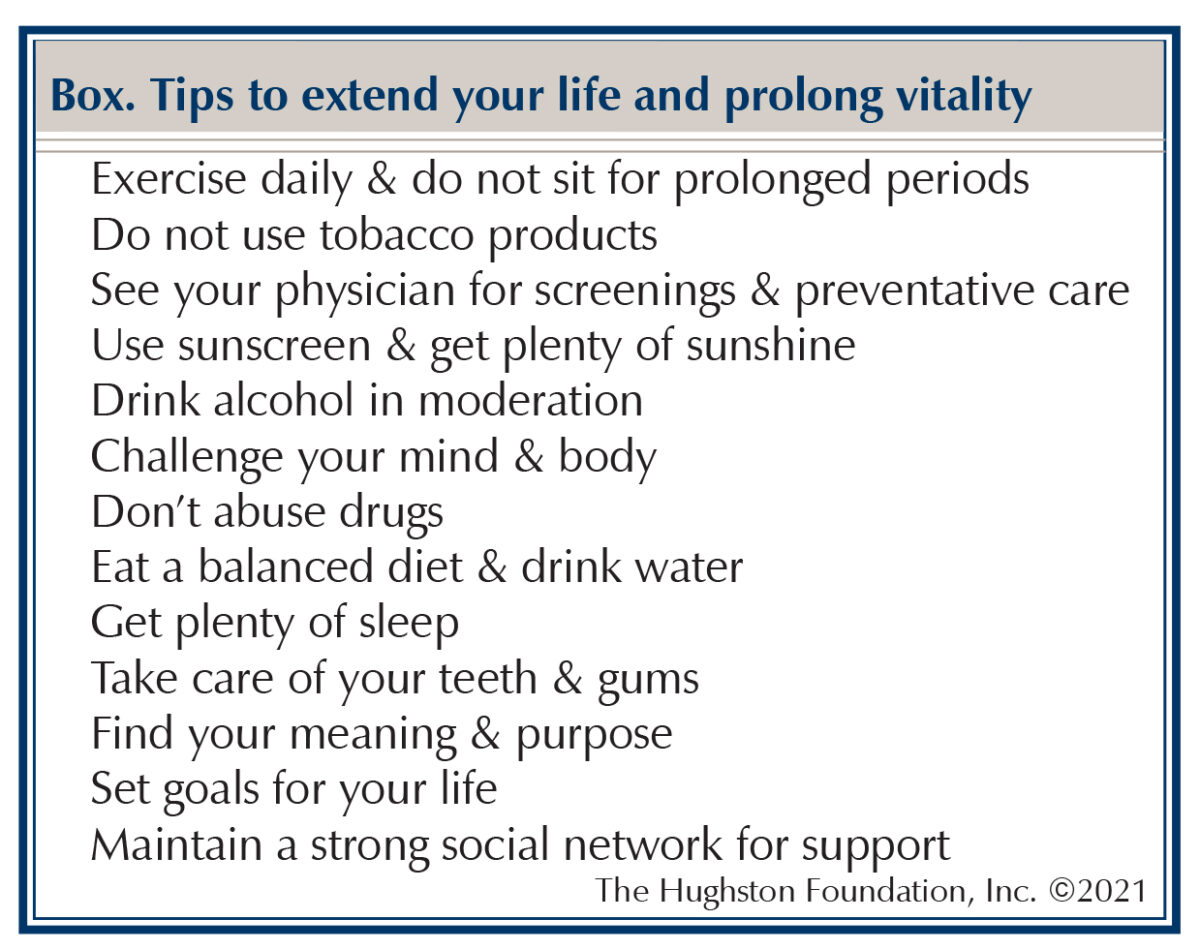
A child born a hundred years ago had a life expectancy of 58 years, if he or she survived to the age of 7. In 2019, according to the US Census report, the life expectancy was age 78. For the most part, the additional 20 years is the result of improved infancy and child mortality rates. Better living standards, medical advancements, and fewer deaths during war have also contributed to longer lifespans.
Yesterday, today, and tomorrow
Over the past 100 years, US life expectancy has consistently shown improvements with the exception of 2 periods of time. Strangely enough, these periods are nearly 100 years apart, between 1915 and 1920, which involved the First World War and the Spanish Flu epidemic, and between 2013 and 2018. The reason for the recent drop in life expectancy is not a result of any specific event or war, but instead it is attributed to negative societal trends, such as poor diet choices, sedentary lifestyles, and increased rates of drug and opioid abuse. The effects of the Coronavirus epidemic on life expectancy has not yet been fully determined; however, the Centers for Disease Control and Prevention (CDC) is already reporting that the American life expectancy has dropped a full year based on the data from the first half of 2020. Researchers blame this dramatic drop on both drug overdoses and COVID-19. Despite the drop in life expectancy, scientists believe that prolonged healthy lifespans are within our reach. Since more centenarians live today than ever before, researchers believe the number of people living to or past age 100 will continue to rise.
Living past life expectancy
Worldwide, approximately 573,000 people are 100 years of age or older. Studies of centenarians and lifestyle trends lead scientists to believe that 19 million people will exceed the age of 100 by year 2100. The interesting part of this upward trend is that investigators also believe that living to 100 will not be due to the genes you were born with, but rather with the choices you make. The New England Centenarian Study from Boston University School of Medicine suggests that during the first 75 to 80 years of life, genes have a small influence on longevity, accounting for only 20 to 25% of the reason that you make it to that age. Living healthy—not smoking, eating a healthy diet, getting plenty of exercise, and limiting alcohol—seems to matter the most. Which means living a healthier life early on can pay off later.
Centenarians tend to live long healthy lives without disability or illness and most only decline in health near their time of death. Thus, even if you fall short of age 100, the years that you do have will be richer and worth living. Investigators of The New England Centenarian Study believe that the older you get is directly attributed to the healthier you have been. Their aging-well model shows that centenarians are affected by disability toward the end of their lives at around 93 years. They also note that about 15% of their subjects have no clinical disease at 100 years old. Others, about 43%, do not have any disease prior to age 80 and 42% who do experience disease before 80 are able to survive the illness. From their studies of centenarians, they have determined that most people have the genetic makeup to live into their mid to late 80s in good health, and can compress the time they are sick toward the end of their life. Which means, much of someone’s ability to live longer depends upon healthy behaviors.
What can I do to live a long heathy life?
It’s never too late to improve your health (Box). Here are the top recommendations from physicians:
Don’t smoke. If you do smoke, quit now to allow your body to heal. The American Heart Association reports that smoking is the most preventable cause of premature death in the US. When you quit smoking your heart rate and blood pressure will go down and your lungs will start to heal. After a year, your chance of having heart disease decreases by 50% of when you were a smoker. After 5 to 15 years of being smoke-free, your odds of having a stroke will match nonsmokers.
Exercise every day. Most physicians recommend 30 minutes a day of moderate exercise. Walking, swimming, running, and cycling are all great forms of exercise. Go to the gym or take up a sport or hobby that encourages regular exercise. Taking walks, especially in parks and in nature, reduces stress and helps boost Vitamin D.
Move more. A growing number of studies are looking at the effects of sitting for prolonged periods of time on mortality in adults. Researchers believe that sitting for long periods may increase your risks for heart disease, dementia, diabetes, deep vein thrombosis, back pain, osteoporosis, and cancer. If you are sedentary for hours, take short breaks often throughout the day to move around and stretch your muscles.
Eat healthy and eat fewer calories. We are overwhelmed with weight loss programs, which makes it hard to decide what is best for you. The CDC recommends that you reduce calories by eating foods that are lower in calories, such as fruits and vegetables that contain more water and are high in fiber. Managing portion size is another way to avoid overeating. They also suggest that you watch what you drink. Many drinks, such as sodas and sports drinks contain as many calories as a meal.
Limit alcohol. Increased alcohol consumption can cause poor judgement, reduced reaction time, and loss of balance and motor skills. It also carries an increased risk of certain cancers, stroke, and liver diseases. Add in the increased risk of motor-vehicle accidents and violence and you have lots of reasons to drink in moderation.

Talk to your doctor
It is never too late to make healthy choices. However, be sure to consult with your physician before making changes to your diet, activity level, or adding supplements to your daily regimen. Teaming with your doctor and following a medically supervised program can put you on the road to a longer, healthier life.
Author: Dennise Brogdon | Columbus, Georgia
Last edited on July 28, 2021